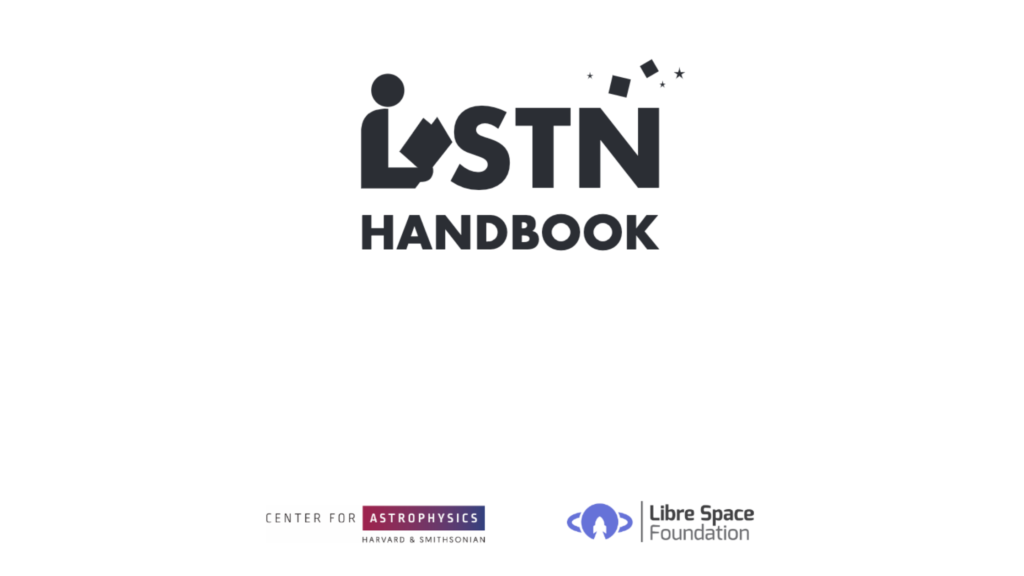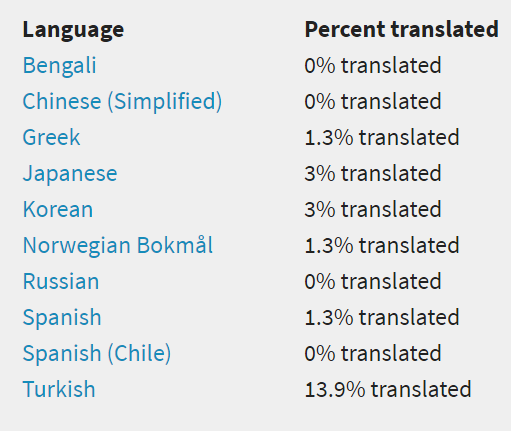
The Library Space Technology Network (LSTN) is a project brought to life by Wolbach Library in collaboration with Libre Space Foundation. LSTN is a pilot program aimed at offering public library communities the opportunity to engage with Space Technology. Though the project is ambitious, language poses substantial limitations for communities to join. And this is where we need your help!
The LSTN project: a more detailed look
The goal of LSTN is to broaden participation in space-based science and engineering, through novel educational opportunities and hands-on learning experiences with open satellite technology in public libraries. It achieves that by giving communities a SatNOGS ground station and educational resources to support their use. At the moment, there are 5 public libraries around the world participating in this initiative: Public Library “B.P. Hasdeu”, in Chișinău, Moldova, Public Library of Santiago, Chile, Cambridge Public Library in Cambridge, MA, USA, John G. Wolbach Library in Cambridge, MA, USA and Marathon Public Library in Marathon, TX, USA.
LSTN is a project with great significance and potential; capable of expanding and including more libraries worldwide. LSTN can grant people access to a set of shared resources that can open doors, provide novel learning experiences, and inspire lifelong learning. Especially, in communities where opportunities to connect with space-based science are limited.
The LSTN Handbook
For libraries to be able to install a SatNOGS ground station, there are several valuable resources available, including a Handbook. The latter provides a detailed walkthrough and guidelines for the entire process in English. And this is where your help is required to get this project to the next stage! As language can be an insurmountable barrier, the LSTN Handbook needs to be translated into more languages to help spread knowledge and space technology to more communities worldwide. For this, we would like your help in translating it into Spanish and Romanian. These two languages are of a high priority now, however, you can add more languages and help us with those translations too!
The Handbook Translation is powered by Weblate, and a tutorial has been created to make the process easier for you. In addition, there is a Weblate Glossary to help you understand the terms Weblate uses. For any questions you might have you can use the LSF community forum, the dedicated MetaSat element/matrix channel, or email the team at contact@lstn.wolba.ch.
Update: The Progress so far

In the last couple of months, the project has attracted the attention of many volunteers that dedicated their time and effort to translating the Handbook into more languages. New languages have been added and progress is made slowly yet steadily. At the moment, the Handbook is being translated into 14 languages and 30.2% of the translations are completed. This is why your contribution is still very much needed to make this project accessible to more communities and make space available to the public.

Takeaway
At LSF, we are devoted to promoting knowledge and finding ways to introduce and include more individuals, teams and communities in space technology development and exploration. We are excited to be working with the Wolbach Library on LSTN to include and engage more communities. However, we need your help to break linguistic barriers and make the LSTN Handbook accessible to many languages. So if you are a space enthusiast, a supporter of knowledge, and want to contribute to take this project globally, you are welcome to begin working on a translation. Do not hesitate to share this article with someone who might find it useful or is willing to help!
Comments
5 responses to “Help us translate the LSTN Handbook and bring space technology to more public libraries around the world”
I want to contribute the translation from English to Korean.
Would you let me know how to contribute this work?
Hey Hongrae, there’s a great tutorial by the Wolbach Library for contributors that would like to work on translating the LSTN Handbook, it also has a section for people that would like to add a new translation (like Korean).
Hope these link help.
I could help you traslating it to Spanish
Hi there,
trying to use weblate for traslation, I would like to be able to see also the figures with the text for the next chapters, I mean in the same web enviroment (weblate).
It’s a manual, so figures are also “texts” in terms of linguistics.
VM
I would love to put in a ground station I don’t know what’s in volled to do it or how much does it cost